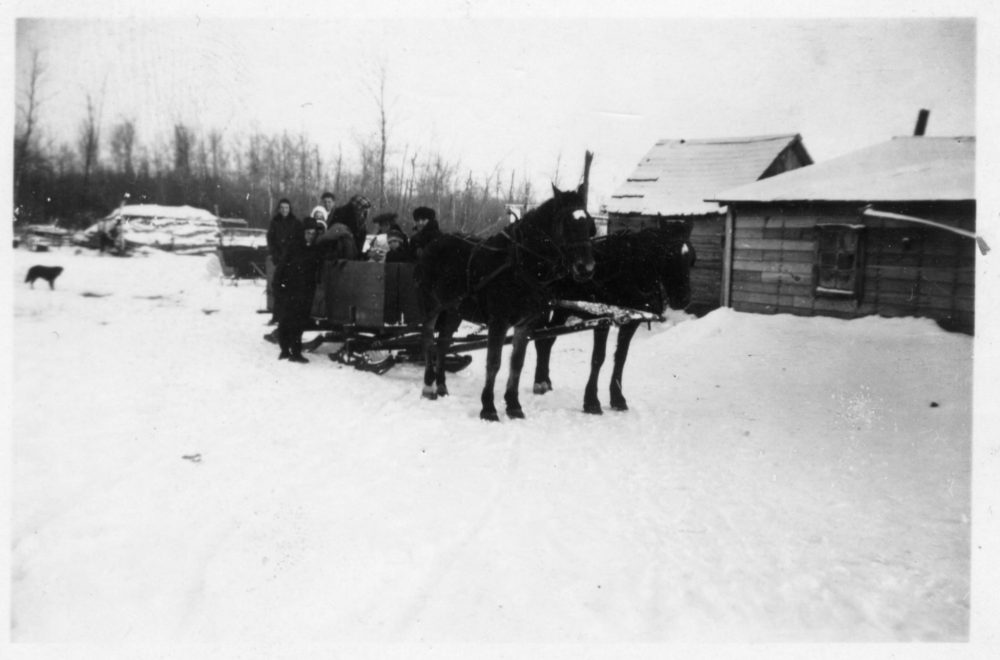COLUMN: Tales From the Gravel Ridge – Remembering a hallowed evening
Advertisement
Hey there, time traveller!
This article was published 04/01/2024 (530 days ago), so information in it may no longer be current.
Most of us living today take for granted that our lives are essentially governed by the calendar as we know it. Generally we give little thought to how the breakdown of a day into hours and minutes has been determined. We might think that the Gregorian calendar by which we establish our daily, monthly and yearly activities, and indeed the general pattern of our lives, has been in existence since time immemorial.
From my earliest Rosengard childhood recollections the reference to the “old style calendar” was not uncommon. That reference was with respect to the Julian calendar which was in use in what had become the Soviet Union, until February 14, 1918, when Vladimir Lenin signed a decree which implemented the Gregorian calendar. Changes to the use of these two types of calendars was no doubt complicated. In fact, the observation of Christian holidays, including calculating the dates for Good Friday and Easter had already become somewhat complex. Because of the history of those who retained the Julian calendar for liturgical purposes, and those using the Gregorian calendar, Eastern and Western Christianity had in the past observed religious holidays on different days. Much of that has changed in recent times.
We have once again, as we do annually, crossed the threshold into another year. In many respects, the new year lies before us as a clean sheet, available to us to create something of beauty in all its possibilities. Shakespeare, the great English dramatist, widely regarded as the greatest writer in the English language, speaks in his play Hamlet of the birth of Jesus, focusing on the wholesomeness of that night. Citing Shakespeare in the lines from the first scene of Hamlet – “So hallowed and so gracious is the time”, Frederick Buechner expresses the thought that we think of time as progression, measurable by such means as a clock or calendar. Buechner then goes on to point out that “…we experience time also as depth, as having quality as well as quantity.” We have all experienced time in such specific ways, be it for example a good time, or possibly a solemn time.

I recall two such momentous New Year’s Eve events of my Rosengard childhood. When I was just a month short of my fourth birthday, I remember that my family was bundled up and travelling in our horse-drawn sleigh. There is one aspect that remains clearly fixed in my mind. Although this was not a party in the conventional end of year celebrations, it was nevertheless a social gathering of like-minded individuals and their families, taking place in the home of the Abraham Neufeld family. I seem to remember that we, the younger generation were enjoying some refreshments in the upstairs rooms occupied by the Neufeld children who were our childhood friends. A portion of the program for the evening was in the nature of a devotional, ending the year in a spirit of reflection and thanksgiving.
A portion of this evening remains clearly fixed in my mind, and it preceded the gathering at the Neufeld home. The Martin Warkentin family farm was located not far from our final destination for the evening. What remains so memorable for me to this day is a small detail of that evening, but one that was oh so momentous. Our sleigh pulled up outside the Warkentin house next to a window, and came to a stop. Our father, Cornelius Falk led our family in song on that cold wintry evening. While I cannot recall songs we sang, I know that it was music suitable for an end of life occasion. Mr. Martin Warkentin was on his deathbed, and our family was, in a sense, accompanying him in song. I wish to think that the family too felt a little less alone during that difficult time.
